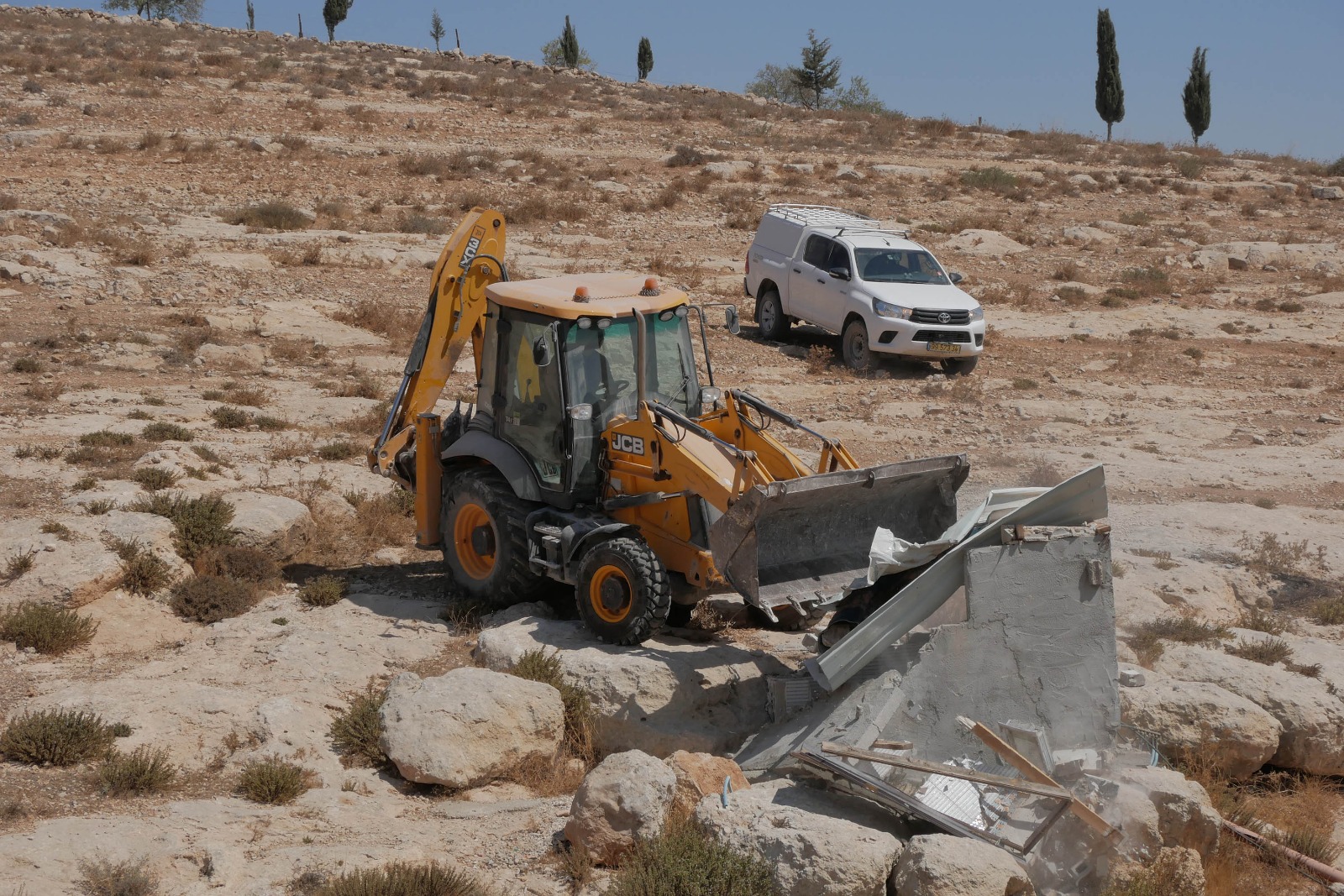Tag: Civil Administration
-
Israeli apartheid in Masafer Yatta: raids, demolitions, arrests and beatings
Beginning with invasive night raids on multiple villages, and ending with 7 structures demolished, 4 families made homeless, 2 Palestinians arrested, 1 beaten and hospitalized, 1 car confiscated, and 1 road severely damaged, Israeli Occupation Forces continue their ongoing assault on local communities in Masafer Yatta.

